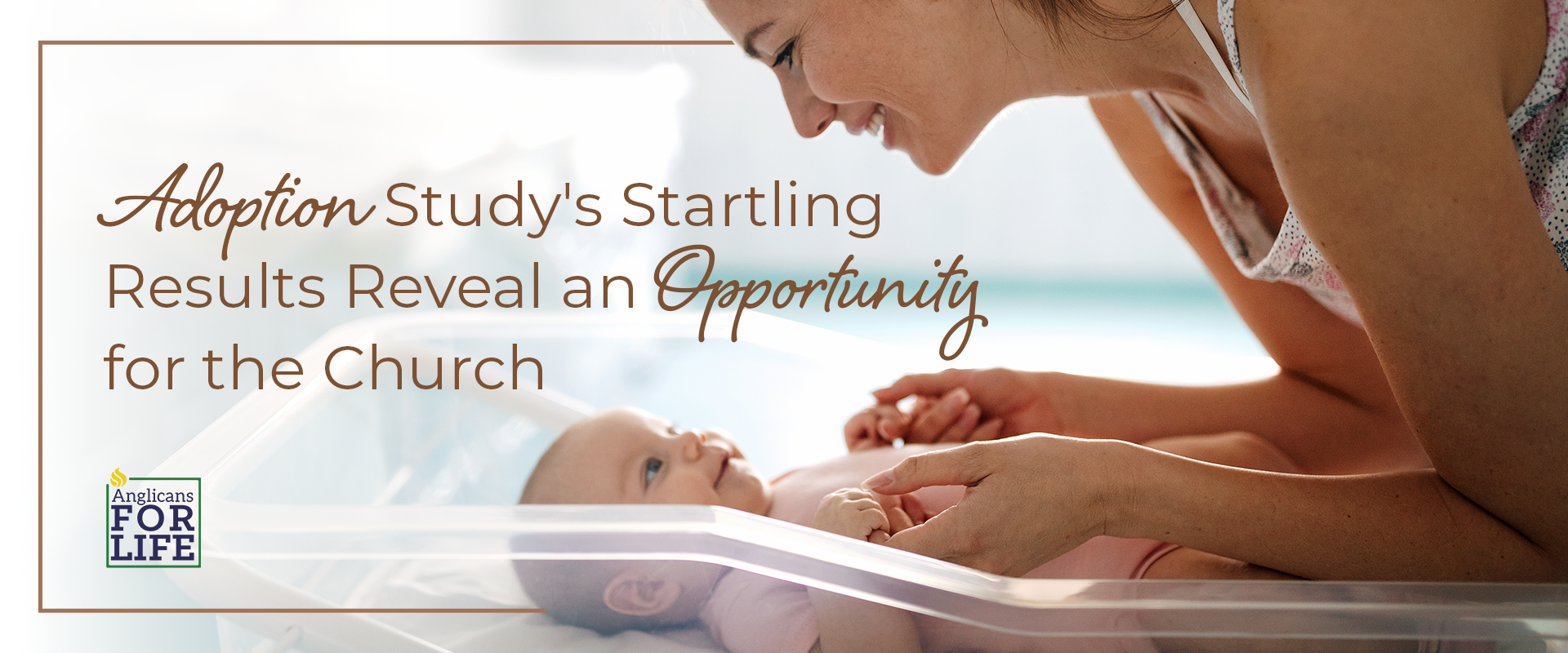By: Johnston Moore, AFL Adoption/Oraphan Care Consultant
One of the frequent criticisms we hear of the Christian pro-life movement is that we care only about babies until they’re born, and then we stop caring. At Anglicans For Life, we believe that ALL life is sacred from conception to natural death. As a result we care deeply for people at all stages of life. People in every stage of life are made in the image of God and are, therefore, worthy of our love. We want every person to have a relationship with Jesus, and to live the abundant life He came to bring – regardless of age or stage.
The recent Supreme Court decision overturning Roe v. Wade has stirred up a lot of emotions, questions, and discussions across the country. One of the most crucial questions that needs to be considered is what will happen to “unwanted” children who will now be born in states that have outlawed, or will outlaw, abortion? Historically, pregnant women have had three options – to give birth and parent their baby (or allow the baby to be raised by relatives); to give birth and place their baby for adoption; or to abort their baby. With the number of abortions limited, more women will be faced with the choice of raising their children themselves (or in their extended families), or placing their children for adoption.
As the adopted children of God, we, in the Church, have an opportunity to come alongside and support women who choose to parent their children, and we also have an opportunity to help them make more informed decisions. We can do this by educating them on adoption and encouraging them to consider adoption when facing the birth of a child they are not prepared to parent. We believe that women facing such a choice need to have the best, and most readily accessible information available to them. A recent study entitled “Adoption and Its Competitors,” conducted by Dr. George Barna and the Cultural Research Center at Arizona Christian University for the Opt Institute, indicates that many women have misinformed views, and/or negative views about adoption.
The Opt Institute is a national adoption research and information center that is “dedicated to improving access to and support for private infant adoption, better understanding women’s decision-making in the context of expected pregnancies, and to helping mothers consider adoption as a meaningful option.”
For this study, more than 1,000 girls and women, aged 15-44, representing a cross-section of America, were surveyed on various issues, including the perceived value of children and human life, anticipated response to future pregnancies, attitudes and knowledge about adoption, influences on adoption thoughts, and more. The survey did not cover adoption from foster care or international adoption, but was focused, instead, on private adoption, in which a birth mother voluntarily places her child for adoption domestically.
Sadly, the Barna study found that nearly half of the women surveyed believe that human life has “no absolute value” and only a small majority believed that having children was a “special, God-given privilege.”
Another disheartening finding was that among women facing an unwanted pregnancy, only 12% would seek guidance from a church or religious leaders, and only 6% would seek guidance from adoption organizations. Even among women who are most likely to choose adoption, churches and religious leaders would be sought for guidance less than Planned Parenthood.
Another tragic finding from the study is that among women who expected to conceive a child in the future, more were likely to choose abortion than adoption.
Women had various reasons for not wanting to place a child for adoption. More than half simply wouldn’t want to “give up a child (they) give birth to” while nearly 2 in 5 said it would be too hard emotionally to do so. More than 1 in 4 said they want to “protect the child from potential harm, neglect” and others cited such reasons as not believing in adoption for religious/moral reasons, adoption having a bad reputation, and that they would prefer to get an abortion instead.
The study also asked women about their knowledge of adoption, specifically on several statements (all of which are true) about which many people have misconceptions.
The statements below are representative of the study and findings:
- 74% knew this fact to be true, “Being able to participate in an ‘open’ adoption allows the birth parents to remain part of the child’s life in a specified capacity.”
- 77% knew this fact to be true, “Birth parents can receive private counseling and other emotional support before, during, and after the adoption.”
- Only 56% knew this fact to be true, “The birth mother’s pregnancy is completely paid for by the adopting parents.”
- 64% knew this fact to be true,“ The birth parents may choose the family that adopts the child.”
- 60% knew this fact to be true, “The birth mother may continue her education or job throughout the pregnancy and adoption proceedings, without losing any income or benefits.”
The study illustrates that the Church has a lot of work to do. Not only do we need to communicate that all life has value, but we need to communicate that adoption is a beautiful alternative for women who do not feel they are able to provide their children with the life that the child needs and deserves. In addition, we need to become a trusted and knowledgeable resource for women who are experiencing a pregnancy in which they are uncertain about their long-term plans.
If you would like to read a press release and summary of the study, click here.
If you’d like to read the full report on the study, click here.
If you’d like to learn more about adoption, and how you and your church can support women who are considering adoption, their children, and adoptive families, please contact us at Adoption@Anglicansforlife.org.

